Search
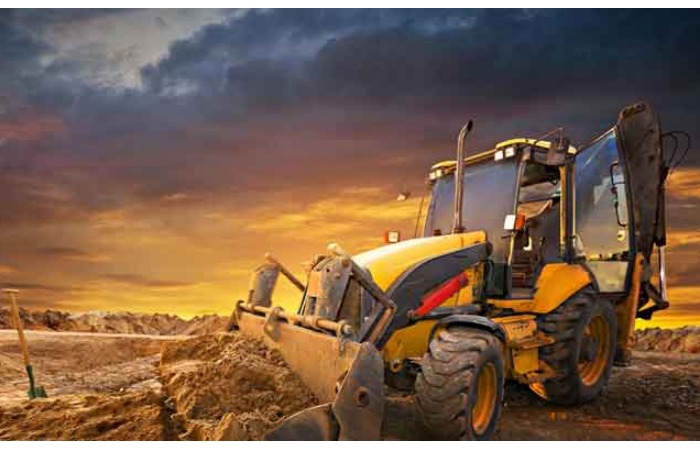
Bringing sustainability to the fore
JCB has continued to make concerted efforts to conserve and optimise the use of energy.
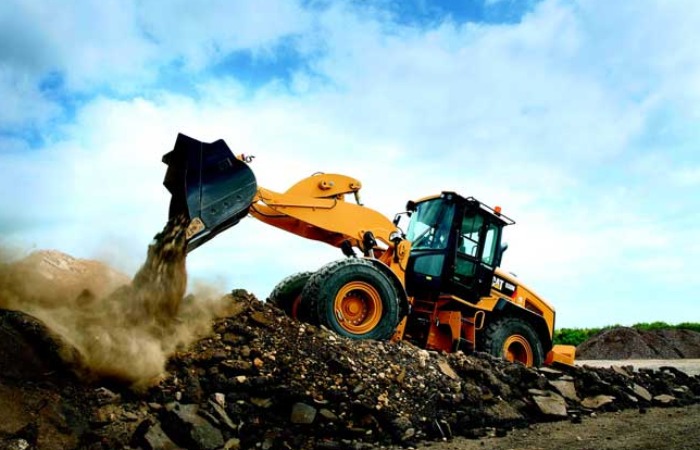
Counting on diggers
Increasing demand for construction and infrastructure activities is anticipated to augment earthmoving equipment market growth in India over the next few years.
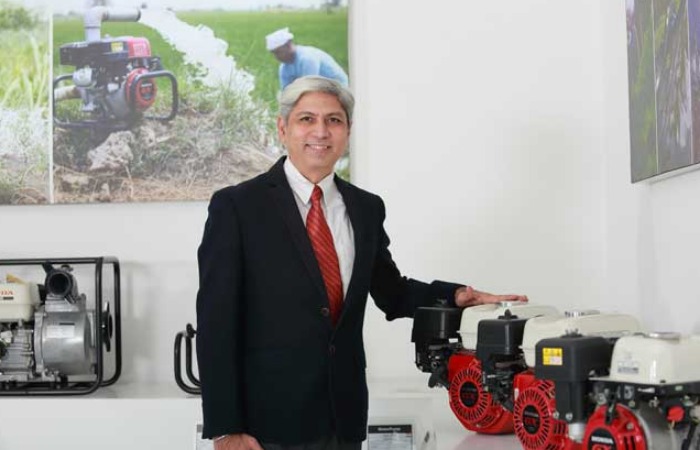
Construction sector: A huge contributor to country's development initiatives
Construction was among the significantly impacted industries due to Covi-19 and sales of construction equipment also fell globally, writes Gagan Pal.
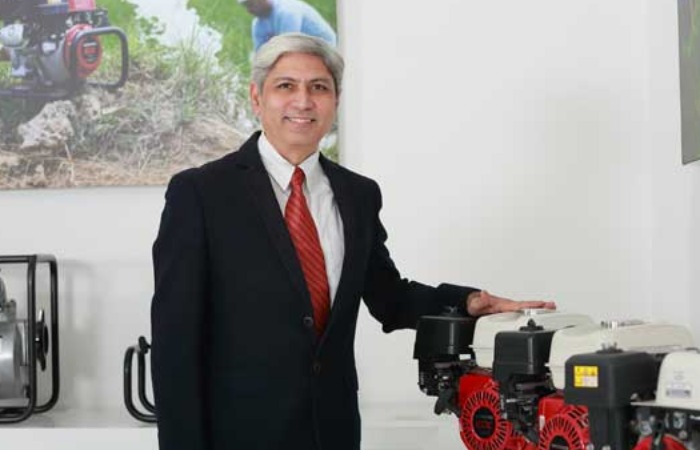
Construction sector: A huge contributor to country's fast-paced development initiatives
Authored by Gagan Pal, Vice President- Sales & Marketing, Honda India Power Products Ltd.
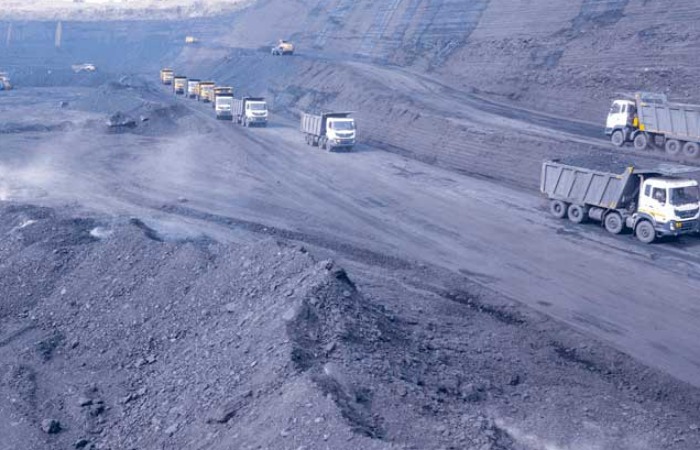
Tipper trucks market gearing up
Revival in mining and gradually picking up construction activities are expected to bring back the demand in the coming months.

Reforms will boost recovery
Reports show an impressive recovery for the Indian economy in the July-September quarter (Q2) from the record decline of the first quarter, indicating that the economic activity has been gathering pace. The economy in Q2 however continues to be contracted.

The M&HCV tipper trucks segment continues to look positive
RT Wasan, Vice President, Product Line, M&HCV, Tata Motors, elaborates on the company strategy in the Covid-impacted market scenario.

Will Growth Sustain?
This September showed a sequential positive trend in the economy. Analysts say the 8 core sectors improved. Now to sustain that growth.
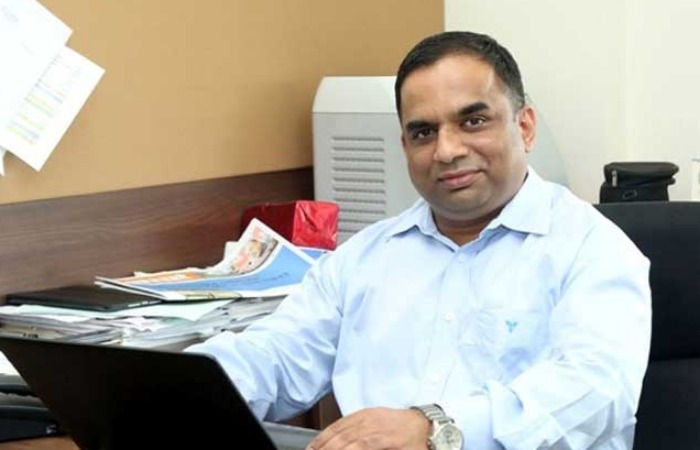
There is a demand surge for crushers in the iron ore segment: Ranjit Ravindran
While the demand for newer machines is not that bullish the existing population of machines is fully optimised to undertake current developmental activities in mining and infrastructure. Ranjit Ravindran, Business Head – Mining, Voltas, shares more on the market dynamics.
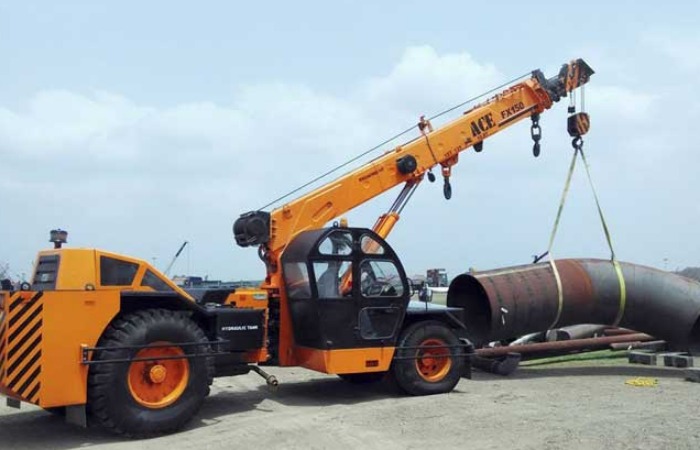
Can Mobile Cranes Lift the Mood?
Mobile cranes in India have transformed into safer and productive with changing design and new features to meet the upcoming demands from the user market. In the current scenario, can these developments in mobile cranes lift the market sentiments?

VECV resumes manufacturing in seven plants
VE Commercial Vehicles (VECV) announced the resumption of manufacturing operations in seven of its plants in the country. These plants located in Pithampur, Dewas, and Baggad in Madhya Pradesh and Thane in Maharashtra have resumed lean operations after the required permissions were granted by the state government.

Highway construction yet to pick up: CRISIL
According to a CRISIL Research report, the highway construction in the country is yet to gather momentum in spite of the relaxation for construction sector across the country.
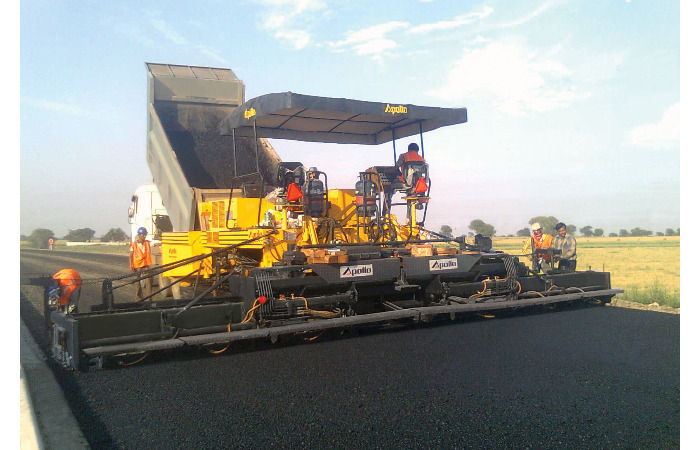
Highway construction yet to pick up: CRISIL
The highway construction in the country is yet to gather momentum in spite of the relaxation for construction sector in the country.

Schaeffler India restarts Savli plant
Schaeffler India announced the resumption of operations in Savli plant in Vadodara. The operation in the plant situated in GIDC Park resumed post government approval and following all safety norms directed by the Ministry of Home Affairs (MHA).
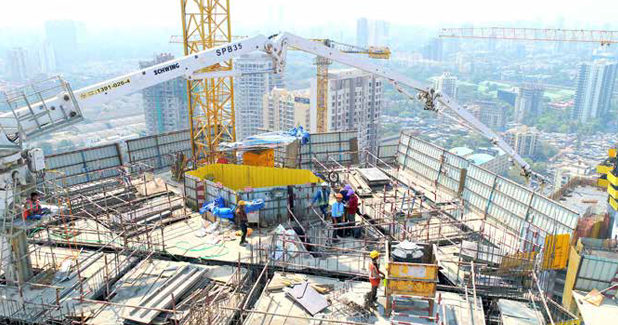
Building confidence
The coronavirus pandemic has created an unprecedented situation in the construction sector. Once back on track after the lockdown, government will have to take some concrete steps to support the industry and economy.
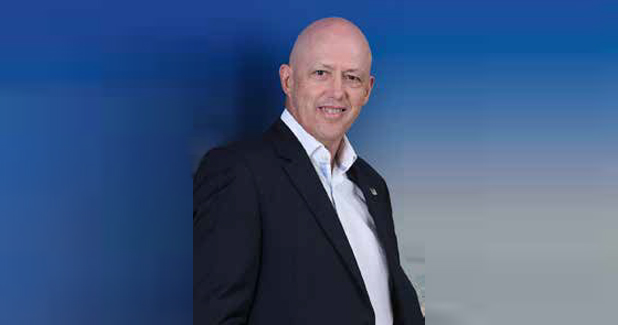
It can take 3-6 months to get back to a smooth industrial activity
At a time when the industry is going through tough conditions, Putzmeister is taking important steps to support its customers.

VECV resumes manufacturing operations in seven plants
VE Commercial Vehicles (VECV) announced the resumption of manufacturing operations in seven of its plants in the country.

VECV resumes manufacturing operations in seven plants
VE Commercial Vehicles (VECV) announced the resumption of manufacturing operations in seven of its plants in the country.
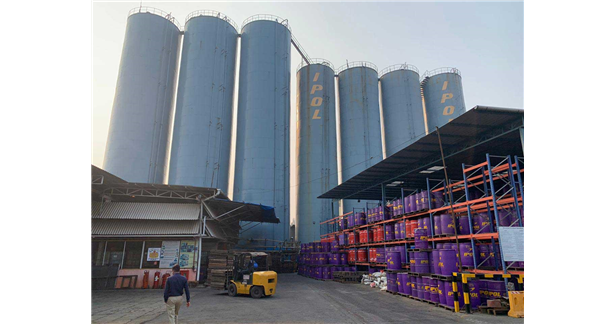
GP Petroleums resumes operations at its Vasai plant
GP Petroleums (GPPL), a leading lubricant manufacturer in India and part of UAE-based GP Global Group, has resumed operations at its Vasai plant and will prioritise supply to essential services such as sugar and power generation industries in these difficult and trying times arisen out of the spread of the COVID-19 pandemic.

GP Petroleums resumes operations at its Vasai plant
GP Petroleums (GPPL), a leading lubricant manufacturer in India and part of UAE-based GP Global Group, has resumed operations at its Vasai plant and will prioritise supply to essential services such as sugar and power generation industries in these difficult and trying times arisen out of the spread of the COVID-19 pandemic.

Can India be an alternate manufacturing base?
Even before COVID 19 crept up upon us, our roads sector had already hit a speed breaker. Construction of highways slowed to 27 km a day during April-January against 29.7 km a day achieved in 2018-19.
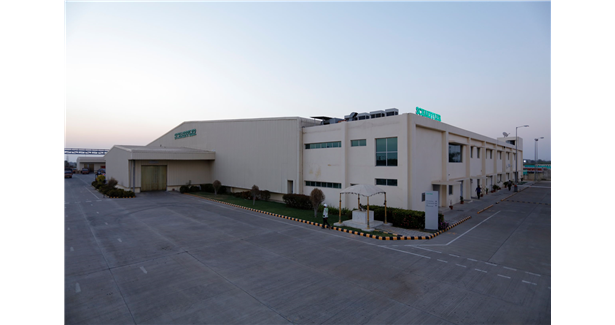
Schaeffler India restarts Savli plant
Schaeffler India announced the resumption of operations in Savli plant in Vadodara. The operation in the plant situated in GIDC Park resumed post government approval and following all safety norms directed by the Ministry of Home Affairs (MHA).

Can India be an alternate manufacturing base?
Even before COVID 19 crept up upon us, our roads sector had already hit a speed breaker. Construction of highways slowed to 27 km a day during April-January against 29.7 km a day achieved in 2018-19.

Coal import decline to impact port players
The rating firm ICRA has cautioned against the continuing decline in coal imports that may impact long term returns for port players with high concentration of coal cargo.

Plea for resumption of mining in Goa
Seeking immediate resumption of mining in Goa, the Goa Mining People's Front (GMPF) on August 3 said it would hold a week-long bandh in Goa's mining belt. Mining has been stayed by the Supreme Court, following PILs about rampant illegal mining in the state. GMPF held a meeting in Panaji and resolved to hold successive bandhs from August 21 to August 28.

FM asked to facilitate mining in Goa
Sesa Goa, in a letter to Finance Minister P Chidambaram, requested the latter to facilitate early resumption of iron ore mining in Goa. PK Mukherjee, Managing Director of Sesa Goa said in the letter that that one-third of Goa's population is dependent on mining. He further said the state government and the industry have already initiated several steps to stre

The TIL-Astec range delivers best-in-class fuel efficiency
At TIL, our constant endeavour is to be customer-centric, keeping the customer and his needs at the centre while working on our strategy or product plan. This approach has made all our products most competitive in offering total cost of ownership,

National Wildlife Board stops mining near Barda sanctuary
The standing committee of the National Board for Wildlife (NBWL) has halted resumption of work at five old open-cast limestone mines located within eight km south-east of Barda Wildlife Sanctuary in Porbandar. The Board is concerned about the possible impact on the ability of Asiatic lions to reclaim their former territory. The Board has deputed two of its members-r MK Ranjitsinh and Kishore Rithe, to carry out a site inspection before any clearances are granted to the mines, together slated to

We will launch CRDI technology-enabled engines for both automotive and nonautomotive applications.
With stateoftheart R&D centres in Italy, the US and India, we strive to give the very best in to the market in India and abroad. Our R&D is continuously working on development of compact, lightweight and fuel efficient engines,? says Sudipto Mukherjee, General Manager Marketing, Lombardini India. Excerpts from the interview. 0 - -
20041 14 102 2011-11-01 00:00:00.000 Behram Ardeshir An Engineering Marvel The first twin cylinder CRDI diesel engine launched in 2010, is an engineering marvel as it is compact, fuel efficient, powerful and is a flexi fuel engine that can run on diesel, CNG or LPG, writes Behram Ardeshir.
Cooper Corporation has a ninety year old pedigree. They have always relied on technology and innovation. In 1922, Cooper made India's first diesel engine. In 2010, they produced India's first twin cylinder, CRDI, Euro IV compliant diesel engine.Cooper Corporation, a leading manu?facturer of engine components like liners, crankshafts, blocks, heads etc for decades, have now decided to set up a state of the art engine manufacturing facility. This is the first Greenfield engine manufacturing facility, other than a small scale operation, to be set up in decades anywhere in the world.
Ricardo of UK was assigned the task of designing the family of engines. The first engine is India's first twin cylinder CRDI diesel engine. This engine was launched in 2010 and is an engineering marvel as it is compact, fuel-efficient, powerful and is a flexi fuel engine that can run on diesel, CNG or LPG.
Farrokh Cooper, Chairman of Cooper Corporation was very clear at the outset. He wanted an engine that incorporated the latest international technology and one that was protected for future legislation as well. Thus Ricardo designed an engine that was Euro IV compliant and Euro V-protected. It was compact and fuel-efficient but Cooper wasn't ready to stop there. He wanted an engine that would work in both vehicular and off-road applications. Going a step further, he wanted the same engine to run on both diesel and gas! Cost of development was not a major factor. The result was a world's first, a twin cylinder CRDI engine that ran on diesel and gas, and was useable on-road and off-road. To top that, it met with all international legislation both present and future, it was compact and more efficient than most of its competition! Whilst most of the competition in India was counting their pennies and spending just what was needed to keep abreast of changing legislation, Cooper Corporation went the whole hog and produced a veritable engineering marvel. Now this engine has set a benchmark for the others to follow.
Once the engine was tested and validated, the engine plant was also ready to be commissioned. The detailed engineering and construction was carried out by Precision Automation and Robotics India of Pune. The team was led by
Dr Ranjit Date, Managing Director and Govind Oza was leading several teams connected with equipment design, layouts, detailed machinery and equipment design, material handling systems, electronic systems etc.
The brief given to them was four-fold:
a)The manufacturing line should be world-class, elegant with best use of technology to ensure satisfactory integration of the materials, design and components.
b)The emphasis would be on the state-of-the-art loading and unloading devices, clamping forces and special machines to ensure the wholesomeness and integration of the Ricardo design with the best engine components and aggregates made by Cooper and their vendors.
c)Cleanliness and a high level of protection from air laden contamination using modern air filtration systems in the ventilation provided in specific areas of assembly.
d)A common rail diesel injection that is a unique and priceless device for successful electronic engine management. This calls for surgical cleanliness in the storage, assembly and handling of the fuel injection system. For this purpose a high purity enclosure within the highly sanitised assembly hall has been designed and implemented.
This production line combines ergonomics and highly productive manual dexterity to augment the various powered mechanical systems for lifting, moving, clamping and measuring. This production line uses several IPV's (Inline Process Verification System) to make sure that the anufacturing process is carried out as per the Ricardo engineering specifications which are enshrined in the Ricardo engine build manual. At every stage after the manufacturing operations an automatic device is used for checking the integrity in assembly.
This production line is standard in that it has a conventional chain conveyor which is carrying on it the trolleys which are required for each engine. All the components of this engine are stored in kitting trolleys switched adjusted to the main assembly line trolley and have within easy reach the components and checking devices used for the assembly. The DC nut runners and other power tools are proved down from over head pneumatic and electric lines within easy reach they provide the necessary power carefully graduated as per the Ricardo tightening specifications.
The production capacity is 24,000 engines per annum and can easily be doubled to 48,000 when the market demand increases. There is further scope for increasing by robotizing selected assembly operations as and when needed. This flexibility has been built in to the system.
The present production line manufactures two cylinder normally aspirated engines and turbocharged engines for industrial automotive and other applications. The same line produces both normally aspirated and the turbocharged engines.
The exclusive requirements of the turbocharged engine as special piston assemblies, turbochargers and such components are stored and made available at specific locations before the engine goes to receive the exclusive fuel injection equipment for such applications. This equipment fitted in the Delphi room for fuel injection equipment assembly and fitment.
The manufacturing operations are not labour intensive in fact they are not even skill intensive. The requirement of manual dexterity is in fact not necessary in the operation of this production system but the workmen concern have to be thinking creative and able to use modern machines and devices to ensure perfection and integrity in assembly and quality.
That the production line is not labour intensive is borne out by the fact that at full capacity not more than eight workmen will be needed for the manufacturing of these engines. The next engine to be produced by Cooper will be their topline six cylinder diesel engine producing 180 to 308 BHP. This engine is currently undergoing endurance testing and should be launched in the near future. This will be followed by the four-cylinder diesel engine producing 121 to 208 BHP.Both engines will continue in the tradition of the twin cylinder by being compact, fuel efficient and low on emissions.
Today, the twin cylinder engine is being incorporated in Cooper Corporation's own range of gensets and talks are on with some major four wheel manufacturers to use this engine in their new range of vehicles. Cooper also has their own small commercial vehicle rolling out next year fitted with this engine. Again this vehicle will feature an ergonomic design and features hitherto available only in passenger cars.
Cooper believes in the future. As an effective insulation from the vagaries of economic cycles, the company has consistently ploughed back its profits into operations and has invested in the latest state of the art technology. It has taken several measures to promote conservation of resources like installation of voltage stabilisers, automatic power correction panels, energy efficient light fittings and 15 windmills. The company has always been technology-driven having won numerous awards and recognition of services by many multinational customers from around the world. Furthermore, the company is ISO 9001:2000 and already certified by TS 16949.


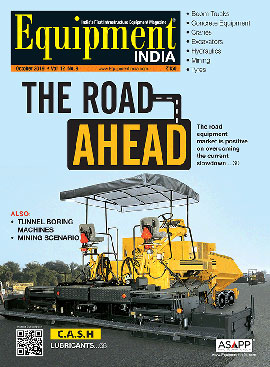
 +91-22-24193000
+91-22-24193000 Subscriber@ASAPPinfoGlobal.com
Subscriber@ASAPPinfoGlobal.com